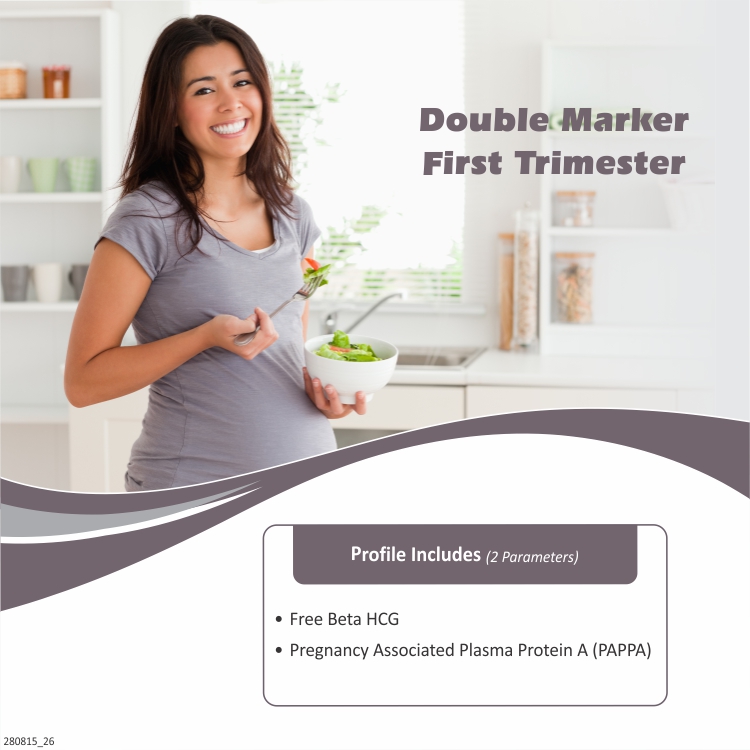support@rsdiagnosticcentre.in
Phone : +918147282686
DOUBLE MARKER TEST

The Double Marker Test Procedure or Dual Marker Test is a screening test that is typically performed during the first trimester of pregnancy.
The test measures the levels of two specific markers in the mother’s blood: human chorionic gonadotropin (hCG) and pregnancy-associated plasma protein-A (PAPP-A).
HCG is a hormone produced by the placenta during pregnancy and is used to confirm pregnancy and to monitor the growth and development of the fetus. PAPP-A is a protein produced by the placenta and fetus during pregnancy.
The Double Marker Test during pregnancy is used to assess the risk of chromosomal abnormalities, such as Down syndrome, and other genetic conditions like Edward Syndrome and Patau syndrome in the fetus. The test results are combined with the mother’s age and other factors to estimate the risk of chromosomal abnormalities.
It’s important to note that the Double Marker Test is only a screening test and is not diagnostic. If the test results suggest an increased risk of chromosomal abnormalities, the mother may be offered further diagnostic tests, such as an amniocentesis, to confirm the results.
The Double Marker Test is a safe and non-invasive option for pregnant women who are interested in learning about the potential risks for chromosomal abnormalities in their fetus. However, it’s important for women to discuss the benefits and limitations of the test with an experienced gynecologist before making a decision about whether to have the test.
What is the difference between NT scan and double marker test?
Difference Between NT Scan and Double Marker Test
While the NT scan is an ultrasound test, the double marker test is a blood test. Apart from the method, there are no significant differences between the two tests.
Tag
DOUBLE MARKER TESTBLOOD TESTINFERTILITY TESTHORMONES BLOOD TESTEnquiry
Get in touch
R S DIAGNOSTIC CENTRE.All Rights Reserved © 2025








